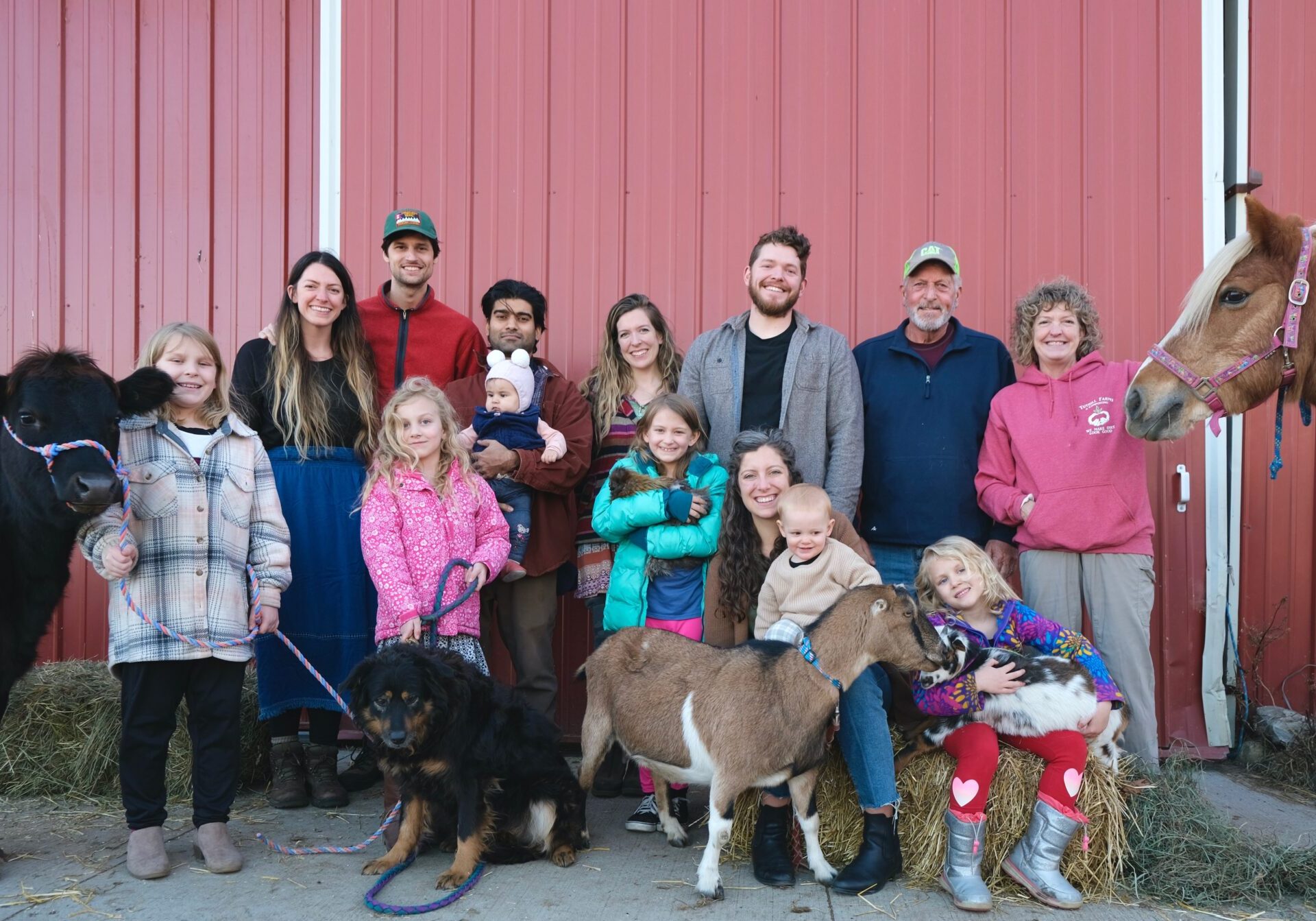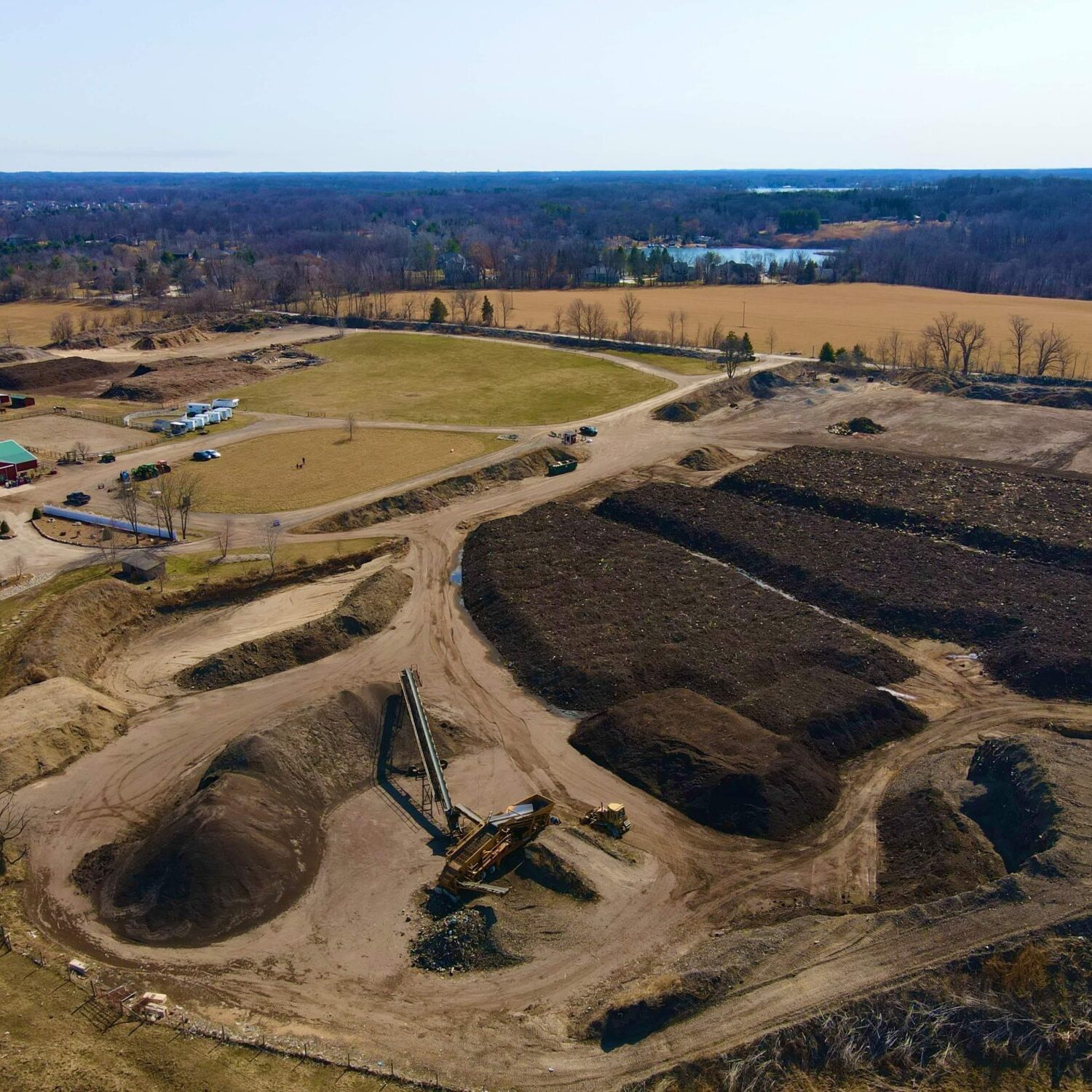
A Michigan
Sesquicentennial Farm
Thomas and Anna Tuthill settled here in Green Oak Township of Livingston County Michigan in 1833. Thomas was known as a farmer, making a specialty of raising and selling Durham cattle and good horses. The Sesquicentennial Farm designation uses the date of 1863 when records show Tuthills farming as a business.
Our 195 acre farm has raised, trained and boarded horses, produced crops, dairy products, hogs, goats, poultry and beef. In recent years, our farm has become surrounded by rapid development in Livingston County. We are less than 10 minutes from a mall and Costco. Our location is an asset that has allowed our farm to diversify throughout the years. We are blessed to have the 7th generation of Tuthills currently living and working on the farm. We hope that our rich farming tradition will continue for years to come.
Our Composting Facility
This aerial photo shows one of the fields we use for composting. The long rows on the left are mixes of grass, leaves and manure. Tuthill Farms and Composting, Inc. is a Michigan Department of Environmental Quality Certified Compost Facility. Our site receives an average of 30,000 cubic yards of organics annually.
Yard waste is dropped off at our site by waste haulers, landscapers and homeowners and mixed at a 3:1 ratio of leaves to grass/manure. Rows are then turned periodically with a large front loader which further mixes, aerates and reduces particle size. Temperatures are monitored and reach up to 165 degrees F. or more, which kills pathogens and weed seeds.
Unlike municipalities, we take an average of 2 years to produce our finished farm compost. Our compost is cured and screened for our use in producing crops and is also available for purchase. We find that this longer process greatly diminishes odors associated with compost facilities while producing an excellent compost.

According to the Environmental Protection Agency, more than 240 million tons of municipal solid waste is generated in the United States each year. Organic waste, including yard trimmings, food scraps, wood waste and paper/paperboard products, make up 2/3 of this solid waste.
